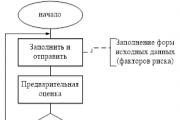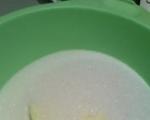What is hyperhidrosis
Excessive sweating (hyperhidrosis) – serious pathology, in which constantly sweaty feet, palms, increased sweating of the armpits, severe redness of the face during stress. Approximately 1% of the population suffers from increased sweating.
Deodorants and others cosmetical tools to eliminate excessive sweating and unpleasant odor are ineffective. Excessive sweating reduces the quality of life: difficulties arise when communicating with other people, shaking hands, and especially many problems arise in intimate life.
Reasons for increased function sweat glands are not known, but perhaps they lie in a local disorder nervous regulation sweating. Idiopathic hyperhidrosis is characterized by increased sweating in one or more areas of the body, most often the armpits, palms and soles. Pathology occurs for reasons that are still unclear and is more common in women.
Causes of excessive sweating
Some scientists explain excessive sweating as a disorder of the autonomic system. nervous system, which regulates the activity of the sweat glands, as well as, accompanying these disorders, an increase in the concentration of stress hormones in the blood - adrenaline and norepinephrine. The theory is confirmed by the fact that hyperhidrosis often accompanies such mental disorders like neuroses or depression.
According to some reports, this condition is associated with hereditary characteristics and an increase in the number of merocrine sweat glands, according to others - with their increased sensitivity to common irritants. As a result, at the slightest excitement, tension, fear sweat glands begin to produce sweat in an amount 10 times higher than normal sweating.
Food-related hyperhidrosis most often occurs after eating a certain type of food, such as pepper, garlic, chocolate, coffee or any hot food. Increased sweating in the forehead and above upper lip appears a few minutes after the start of the meal and goes away within 1 hour after finishing it.
Increased sweating with hyperthyroidism
Increased sweating in hyperthyroidism is always general, caused by increased tissue metabolism and is a compensatory condition, necessary for the body in order to prevent an increase in body temperature. Along with excessive sweating, the patient is concerned about:
- increased heart rate;
- high blood pressure;
- general weight loss;
- weakness;
- increased appetite;
- emotional instability;
- nervousness;
- lung slight trembling limbs;
- menstrual irregularities.
The skin of the entire body is moist and, despite increased sweating, hot. As a rule, the higher the level of thyroid hormones in the patient's blood, the more severe the sweating.
Sweating in diabetes
Generalized sweating with diabetes mellitus is associated with damage to the peripheral nervous system characteristic of the disease and increased heat production caused by increased metabolism. Often, along with heat intolerance and general sweating, patients experience especially pronounced sweating in the upper body, in the head and neck area.
Increased sweating, combined with trembling and lightheadedness, in patients with diabetes mellitus may be associated with sharp drop blood glucose levels (hypoglycemia) accompanying an insulin overdose. Hypoglycemia can develop in quite healthy people in a state of hunger, with ethyl alcohol intoxication (drinking alcohol), taking salicylates (aspirin).
Hyperhidrosis in menopausal syndrome
Hyperhidrosis in menopausal syndrome is one of the most characteristic manifestations illness and is combined with sensations of heat in the upper half of the body and face - hot flashes.
The causes of increased sweating, as well as other disorders that accompany menopause, lie in the aging of the hypothalamic structures that control the functioning of the endocrine glands and the release of biologically active substances (bradykinin and histamine) into the bloodstream, causing a sharp dilation of skin vessels, and therefore increased sweating.
Increased sweating with tumors
Increased sweating in malignant tumors occurs as a result of the production cancer cells biologically active substances that have a vasodilating effect.
It's interesting that skin manifestations It is often possible to judge the location of the tumor. Thus, ileal cancer is accompanied by increased sweating in the face and neck, lasting only a few minutes, and malignant bronchial tumors are accompanied by hot flashes that can last for days.
Excessive sweating associated with stomach tumors may be accompanied by blistering of the skin, especially on the palms of the hands or soles of the feet. Hyperhidrosis with carcinoid syndrome always combined with other manifestations of tumors.
Excessive sweating may be a symptom of the following diseases:
Treatment of excessive sweating
To solve the problem, modern aesthetic medicine offers a well-proven method - the use of drugs based on botulinum neurotoxin type A. We are talking about Lantox or Dysport. The fact is that each muscle gland is suitable muscle fiber. When it contracts, sweat is released.
Often during a stressful or nervous situation, the sweat gland receives a false signal and produces too much sweat. Dysport and Lantox injections block signals from nerve endings to muscles, preventing the production of sweat. Before the procedure, it is necessary to conduct a special test - the so-called Minor test - to determine the area of sweating and the degree of severity. Then the doctor begins to treat all sweating areas.
The procedure itself takes about 30 minutes: first, a special cooling cream is applied to the skin in the injection area, and then the doctor carefully injects small doses of the drug into areas of increased sweating. The number of injections is calculated individually. After the procedure, excessive sweat production is blocked for 2–3 days and is restored only after 6–12 months, after which the injections can be repeated.
Thermoregulation is not disturbed; on the contrary, the condition of the skin improves, as its level of hydration is normalized. With the help of injections, you can quickly, effectively and permanently improve the quality of your life, getting rid of eternally wet feet, wet palms and armpits. In just 10-15 minutes you can return to your normal lifestyle and enjoy freedom from the unpleasant odor of sweat!
Which doctors should I contact if I have excessive sweating?
Medicines for excessive sweating
Sweaty feet
As a rule, sweating and foot odor can be dealt with by following general hygiene rules and using various sprays and powders. However, for some people, sweaty feet are a chronic problem.
Why do my feet sweat?
The cause of sweaty feet is the work of the sweat glands on the feet. Excessive sweating causes intensive proliferation of bacteria, which in the process of vital activity decompose tissue particles on the surface of the skin, which leads to the formation of organic gases and the appearance of an unpleasant odor. Sweaty feet become more intense when:
- high temperature;
- physical activity;
- excitement or other emotions.
If you experience excessive sweating, you should consult a doctor, as there are many reasons for this condition. Sweating may occur when eating salty foods, increased activity thyroid gland, diseases of the endocrine, cardiovascular or nervous system.
How to get rid of sweaty feet
To get rid of sweaty feet and the resulting unpleasant odor, it is necessary to reduce sweating and the growth of bacteria on the feet. To do this, you should carefully follow the rules of hygiene: keeping your feet dry will help changing socks several times a day, A washing feet with antibacterial soap will prevent the growth of bacteria.
In addition, you can use powders that absorb odor. Can be effective use of drisol - aluminum chloride solution. If you apply Drisol to your feet before bed, it inhibits the growth of bacteria and reduces sweating. However, using this drug may cause skin irritation.
The essence of another method is to use iontophoresis- penetration of an ionized substance through intact skin under the influence of direct current. With iontophoresis, the skin loses its ability to produce sweat. Success from using iontophoresis is possible after training, so the possibility of using iontophoresis should be discussed with your doctor.
In addition, there are other types of therapy: the use of atropine-like substances, the use of antibiotics and glutaraldehydes, but they can cause unwanted side effects.
Treatment of sweaty feet with folk remedies
Questions and answers on the topic "Excessive sweating"
Question:Hello, my name is Sergey, I'm 22 years old. For the last five years I have been suffering from generalized hyperhidrosis. Not only armpits and palms sweat, but also many other parts of the body. Very interesting, how much does endoscopic sympathectomy cost?
Answer: In generalized hyperhidrosis, endoscopic sympathectomy is contraindicated due to the risk of developing very severe compensatory hyperhidrosis.
Question:Is it possible to treat hyperhidrosis at home?
Answer: At home, treatment can be carried out using iontophoresis and the use of aluminum chlorides. In principle, there is a practice of carrying out Botox injections also at home, which is true not entirely correct with medical point vision. If you were thinking about home remedies, then I have to disappoint you. There are no effective home remedies for treating hyperhidrosis.
Question:Hello! Please tell me, can there be local hyperhidrosis from birth? My baby's feet and palms are sweating and they are cold. The neurologist diagnosed him with vegetative-vascular dystonia and prescribed him to drink Cavinton. I'm afraid to give him this medicine. The boy is 6 months old. I developed hyperhidrosis when I was 9-10 years old and still have it. Your palms and feet also sweat. I'm afraid it was passed on from me. In general, the child is healthy, born without pathologies. Maybe there are still signs of this dystonia, I didn’t want to give him extra medications. After all, I know that hyperhidrosis cannot be cured. Help me figure out whether the child has dystonia or hereditary hyperhidrosis. Thank you in advance.
Answer: At 6 months, this may still be a reflection of the immaturity of the autonomic nervous system. I think I'm doing special treatment not worth it. If hyperhidrosis is transmitted (and this happens in half of the cases), then it will still not be possible to cure it with Cavinton.
Question:Hello! I'm 20, about a year and a half ago I started having problems with sweating, wet armpits, palms and legs! I went through all the doctors, blood tests, hormones, heart, etc. But the doctors just smiled and said that I was doing nonsense. Although this problem is killing my whole life. During the day I sweat, and around 12 at night I become dry and the sweat disappears, it’s gone! I feel human! Then I go to bed and wake up and my armpits, palms, legs are wet again, and so on all day. I quit smoking and it became less. But sweat does not obey laws. Sometimes it pours like a bucket, and sometimes it’s gone for 5 minutes. Then again. Dry at night. What could it be?
Answer: If sweating is limited to the armpits, palms, feet, is absent at night, increases with excitement, decreases with alcohol intake, then obviously you are in the 3% of the population suffering from local primary idylopathic (without an obvious cause) hyperhidrosis.
Question:Good afternoon. About six months ago I began to sweat a lot, especially my palms, armpits and feet. Repeatedly studied for infections, immune status, condition internal organs- in general, everything is normal. Nowadays, excessive sweating causes great discomfort at work - it especially interferes with constant sweating palms. How can you get rid of of this disease or at least reduce sweating of your palms? I read that drugs like Maxim are quite effective, but are they suitable for me and what are their main side effects? Thank you!
Answer: You didn't indicate your age. This has some implications for defining the problem. Maxim will not help with the palms. It makes sense to try iontophoresis or Botox. If hyperhidrosis is particularly persistent, a sympathectomy can be considered, but this last resort and in any case only after detailed discussion.
Question:I got sick with the flu, treated myself for a week - it didn’t help. I went to the doctor. They injected me with antibiotics, intravenous calcium, inhalation, etc. (it turned out to be tracheitis). I thought I had recovered, but increased sweating appeared after the illness. Tell me what to do? Thanks in advance!
Answer: Please clarify, is sweating general (the whole body sweats) or local (only the palms, armpits, etc. sweat)? When is sweating more pronounced: at night or during the day? There are several main reasons for increased sweating, including during recovery from a serious illness, after treatment with antibiotics, and increased sweating may also indicate disorders of the nervous system, etc. We recommend that you consult a therapist or neurologist.
Question:My 35 year old husband and 5 year old son sweat a lot after falling asleep for 2 hours (approximately). Is this related to some kind of disease or is it just a feature of the vegetative-vascular system (passed on to my son from my husband)?
Answer: Most likely, increased sweating is associated with the peculiarities of the autonomic system of your husband and child, but you need to check whether the sweating is accompanied by an increase in body temperature.
Question:Hello. I am 16 years old. I have excessive sweating in my legs, armpits, and face. My feet are sweating a lot. This greatly spoils shoes and air. Every day before school I wash my feet and apply Teimur paste, wash my shoes, and change my insoles. It's all useless. It's definitely not about shoes and lack of cleanliness. My armpits are still sweating a lot. Every day after coming home from school, large white spots remain on my jacket in the armpits. I still have a constantly oily face, especially my nose, it’s already shiny! I wash it every morning, within 2 minutes after washing it’s all greasy again, you’d think a person hasn’t washed for a month. Please tell me how this problem can be solved or mitigated? Thank you in advance.
Answer: Hello, the cause of excessive sweating and oily skin- this is an enhanced function of sweat and sebaceous glands skin (which in turn may be associated with certain hormonal changes, occurring in your body). It is likely that the symptoms you have indicated are temporary and will soon subside. We strongly recommend that you consult a dermatologist who will determine the exact cause of the disorder and prescribe treatment.
Question:Hello. My sweating suddenly and severely increased. Please tell me how to get rid of this quickly and what could be the reason for this? I’m not overweight, but I recently started running.
Answer: To combat hyperhidrosis, you should use antiperspirants and try to wear lighter clothing to avoid overheating. In which parts of your body do you sweat excessively?
Question:I am 23 years old, I have been suffering from the problem of sweating for a long time when I walk, do something and just sit. I recently noticed that my body is constantly hot, I examined the functioning of the thyroid gland, everything is normal, but I often have a rapid heartbeat. Can the work of the heart affect the occurrence of my problems? Thanks for the answer!
Answer: The work of the heart does not affect sweating, however, profuse sweating and rapid pulse together can be a manifestation of vegetative-vascular dystonia. Have you tried using antiperspirants?
Question:My daughter is 4 years old, 2 days ago she started coughing, the cough is not strong, dry, mainly at night; there is no fever, no runny nose, but these 2 days she has been sweating a lot, her skin is constantly moist and cool, her body temperature is exactly 36, she has no complaints, what could this mean?
Answer: Judging by the description, it can be assumed that the child has a mild ARVI. If the child’s condition does not improve over the next 3-4 days, be sure to show him to the doctor. There is no need to carry out any treatment before contacting a doctor. Just make sure your child drinks more.
Question:Lately my feet have started to sweat a lot, which is accompanied by a strong unpleasant odor, no matter what shoes I’m wearing. The skin of the feet is clean. What is it and how to treat it? Thank you!
Answer: It is possible that you have fungal disease foot skin See a dermatologist.
Hyperhidrosis - increased sweating. Heavy sweating may affect the entire body or some areas and cause severe discomfort. This delicate issue They often try to hide it and are embarrassed to see a doctor. Meanwhile, excessive sweating of the body can be a sign of a number of serious diseases.
Men, women, children
Human skin contains millions of sweat glands. And this necessary condition normal life. Harmful substances and toxins are eliminated with sweat; with the help of sweat, the body cools and heals. Excessive sweating in men, women and children can have various causes.
Excessive sweating in men
This is partly a genetically determined condition. Men do more physical labor, overheat more often and have a greater need to cool down. In addition, differences in body weight matter. Larger, heavier men sweat more.
Excessive sweating in women
On average, women sweat 2 times less than men. However, hyperhidrosis occurs in them with the same frequency as in men. Excessive sweating in both sexes can be caused by the same reasons. The approaches to treating this condition are also similar.

The only distinct cause of female hyperhidrosis lies in changes in female hormone levels. We can talk about hormone-dependent sweating in the following cases:
- If severe sweating occurs for short periods during each month, then we can safely talk about hormonal reason hyperhidrosis.
- If severe sweating occurs during pregnancy and lactation, then this is also the result of fluctuations in the level of female sex hormones.
- If excessive sweating occurs during menopause.
What to do in such cases? Contact your gynecologist. After determining hormone levels, the doctor may decide to prescribe hormone replacement therapy.
What to do if excessive sweating bothers your child
If excessive sweating is diagnosed in children over 6 years of age, then this condition can be caused by the same reasons as in an adult.
Newborn babies do not sweat at all, but starting from the age of two months, children can sweat heavily in the following cases:
- during feeding, especially if the mother is breastfeeding;
- if the child is dressed too warmly;
- if he screamed and cried for a long time.
Children under 3 years of age often sweat profusely while sleeping. Many pediatricians consider this completely natural. You should not try to get rid of this condition. Most likely, over time, the child will “outgrow” such sweating.
Many people mistakenly associate severe sweating with rickets - don’t make hasty conclusions! Moreover, rickets has many other, more obvious manifestations.

Ideopathic hyperhidrosis
Severe sweating throughout the body is a symptom of a number of diseases. You can get rid of the disease by accurately establishing the cause of hyperhidrosis. However, in some cases, a completely healthy person cannot get rid of excessive sweating. Then they talk about the idiopathic form of hyperhidrosis.
What can cause excessive sweating? Neurosis, allergies and increased reaction to external stimuli.
Nervous sweating
Irritable, hot-tempered people who suffer from frequent depression often suffer from hyperhidrosis. In this case, the work of the sweat glands is affected by increased levels of adrenaline.
What to do if you suspect you have this particular form of the disease? Contacting a neurologist is the only correct option to solve the problem. Because the nervous sweat makes itself felt mainly during outbursts of aggression, then healing from neurosis will relieve unpleasant symptoms.
Food allergies
Some people sweat when eating. This causes psychological discomfort not only in the sweating person, but also in those around him. The reason for this hyperhidrosis is individual reaction for a certain type of food. What to do to get rid of such hyperhidrosis? Just don't eat foods that cause this reaction in public places.

External environmental factors
Exercising, uncomfortable synthetic clothing and shoes, heat and cold - a number of reasons can cause severe sweating. But if a person sweats so much that he has to carry a change of clothes and wet his palms before greeting, then this becomes a problem that requires treatment. What to do? See a therapist.
The reasons for such severe sweating are the individual reaction of the sympathetic nervous system to external stimuli. Unfortunately, we cannot control this process, just as we cannot speed up our pulse or slow down our heartbeat.
Hyperhidrosis is a symptom of body dysfunction
What health problems can be accompanied by excessive sweating? Let's consider the most common reasons the occurrence of hyperhidrosis.
Fever
A common cause of profuse perspiration. Any ARVI accompanied by high temperature, may cause profuse sweating. This is a normal reaction of the body to overheating. Usually, if a patient is sweating with a fever, this is a good sign that the fever is subsiding.

Endocrine system disorders
The endocrine system regulates the functioning of the entire body. It is also responsible for thermoregulation. Accordingly, many diseases of the endocrine organs can be accompanied by severe sweating.
- Thyroid dysfunction. Disrupts normal heat exchange in tissues. The result is increased sweating.
- Diabetes mellitus causes problems metabolic processes. Low blood sugar levels are often accompanied by increased secretion sweat.
Changes in hormone levels
Characteristic of the fair half of humanity. The formation of menstrual function, the birth and feeding of children, menopause - all these processes affect the level of sweating.
Obesity
Increased weight is a burden for the whole body. An obese person spends more energy on life activities and therefore sweats more.

Diseases of the central nervous system
Mental disorders are common causes of hyperhidrosis. Common to the neurological origins of hyperhidrosis is uneven sweating. So, only one armpit or palm can sweat.
Genetic diseases
Severe sweating is one of the symptoms of a rare genetic disease - Riley-Day syndrome. Hyperhidrosis in this disease is most pronounced in stressful situations when the patient's adrenaline levels are elevated.
Drug addiction and alcoholism
Drug and alcohol addiction is a complex disease that disrupts the biochemical processes of all systems. Amid the cancellation narcotic drugs, in addition to other withdrawal symptoms, a state of hyperhidrosis occurs.
Tuberculosis
General malaise, weakness, weight loss, and fluctuations in body temperature during tuberculosis can be accompanied by night sweats with a characteristic odor.

Neoplasms
Tumors lymphoid tissue cause profuse night sweats. Neoplasms of the adrenal glands and intestines - possible reasons hyperhidrosis.
Heart diseases
The patient's pre-infarction state is often accompanied by profuse cold sweat. Along with heart pain, pallor and shortness of breath, such sweating is an important symptom of the onset of myocardial infarction.
The smell of sweat as a diagnostic tool
Excessive sweating throughout the body can be a sign of many diseases. For a qualitative diagnosis of the causes, the therapist may recommend tests (OBC, OAM, biochemistry, blood test for sugar and hormone levels). In addition, it would be useful to visit specialized specialists, namely:
- cardiologist;
- neurologist;
- endocrinologist.
Getting rid of the disease is possible only after a thorough history taking!
The smell of sweat
Initially, sweat is a sterile liquid. It is colorless and odorless. Sweat acquires a specific aroma when it interacts with microorganisms in our skin. However, in some cases, sweat has a strong, unnatural odor. Often this is key moment when determining the causes of hyperhidrosis. What disease can a strong smell of sweat indicate?

What can you do at home?
Even a slight increase in sweating brings significant discomfort and a desire to get rid of this condition. What can you do at home?
- Maximum attention should be paid to hygiene procedures. Daily showers, wet wipes and frequent changes of clothes can reduce the problem.
- Dietary nutrition is the second step that must be taken by those who want to get rid of the disease. Salty, sour, fried, exotic dishes should be excluded from the diet.
- Wear only natural fabrics! Synthetic linen and bedding should be replaced with linen and cotton.
There are so many reasons for hyperhidrosis that even experts sometimes have doubts. However, high-quality diagnostics is the only chance to get rid of this unpleasant condition. Only a doctor can correctly prescribe treatment. Surgical or medicinal intervention can significantly alleviate the patient’s condition and help him live a full life without complexes.
Contrary to popular belief, the fair sex suffers from excessive sweating just as often as men. Healthy women They successfully cope with sweating with the help of a daily shower and antiperspirants, however, in some cases, constant excessive sweating becomes a serious psychologically traumatic factor. Fortunately, today absolutely everyone can find suitable method, which allows us to effectively solve this problem.
Types of hyperhidrosis
- This scientific name increased sweating, which is not associated with physical activity or increased ambient temperature.
Increased sweating in women can be:
- Local. If a woman has hyperhidrosis of this type, only certain parts of the body become covered with sweat. Most often this is the armpit area, palms and feet, face and groin area.
- Generalized (with this type of hyperhidrosis, the entire body then becomes covered).
In most cases, with excessive sweating in women, primary hyperhidrosis is detected, in which increased sweating is not associated with other diseases.
If excessive sweating occurs in the presence of any disease or when the body is exposed to certain factors, they speak of secondary hyperhidrosis.
Excessive sweating in women can manifest itself in certain time year (have a seasonal nature), be present constantly or be paroxysmal in nature.
Excessive sweating itself rarely causes physical discomfort, but even light form hyperhidrosis is accompanied by aesthetic problems.
Since increased sweating is most often observed in the armpit area, and sweat stains are difficult to wash off, women suffering from excessive sweating try to wear dark-colored clothes and experience discomfort when necessary active actions. In addition, wet palms and shoes, a face wet with sweat, armpits and neck give rise to self-doubt in a woman.
According to statistics, 71% of people suffering from hyperhidrosis feel insecure, and 49% feel unhappy or depressed.
In moderate to severe sweating, there is often bad smell sweat, therefore, such forms of hyperhidrosis significantly affect the behavior and psyche of women, leading to failures in the social sphere.
According to statistics, 81% of respondents experience awkwardness when communicating with strangers, 31% experience some restrictions in the sexual sphere, and 25% of respondents avoid communication even with close people.
Why does hyperhidrosis develop in women?
Excessive sweating in women can occur as a result of the influence of household factors on the body or due to certain types of diseases. The most common causes of excessive sweating are:
- Stress. In women with an easily excitable nervous system, when frightened, excited or depressed, the palms, nasolabial triangle, armpits, back or feet sweat heavily.
- Excess weight. With a well-developed fat layer, the heat generated by the body accumulates in large quantities, and the only natural method of cooling is sweating. This is why women who are overweight sweat more often and more actively than people of normal weight.
- Changes in hormonal levels. If stress and increased body weight are the cause of hyperhidrosis in both men and women, then sweating due to hormonal changes is usually a female characteristic. In the human body, the hypothalamus (part of the brain) regulates temperature and controls sweating, the work of which is associated with the activity of the endocrine system. IN female body many processes are regulated by female sex hormones - estrogen and progesterone. An imbalance of these hormones causes disruption of the hypothalamus, which leads to hyperhidrosis.
- Hyperfunction of the thyroid gland (thyrotoxicosis), which occurs 10-12 times more often in women than in men. Thyroid hormones accelerate metabolism and thus increase heat generation, and an increase in heat generation requires increased heat transfer.
- Vegetovascular dystonia. Hyperhidrosis in this disease is associated with disruption of the autonomic nervous system, which transmits impulses that cause sweating.
Excessive sweating can be caused by diabetes mellitus, infectious, malignant and cardiovascular diseases.
Severe sweating of the whole body in women is observed with some hereditary diseases(Riley-Day syndrome, etc.).
Severe sweating of the head and face in women is possible due to facial injuries, polyneuropathy, etc.
 Facial hyperhidrosis
Facial hyperhidrosis Promotes increased sweating and long-term use antibiotics, antidepressants, antitumor drugs and some other medications. So, many women experience strong night sweats upon admission contraceptive drugs or upon their cancellation (Yarina, Zhanin, etc.).
Domestic reasons also cause sweating in women:
- Out-of-season or tight-fitting clothing, as well as clothing made from poorly breathable synthetic fabrics.
- Poor nutrition. Excessive sweating affects lovers of hot and spicy dishes, people with a sweet tooth and women who consume fatty varieties meat. Drinking alcohol and coffee also causes profuse sweating, while acidic foods, cocoa and chocolate cause bouts of night sweats.
- Poor hygiene. Many women do not understand the mechanisms of action of deodorants and antiperspirants and are accustomed to applying these products to the skin immediately after a shower or to a slightly sweaty body right before leaving the house. If in the case of a deodorant such actions are not critical (the deodorant is designed to block the vital activity of bacteria that contribute to the appearance of strong smell sweat, but does not affect sweating), then antiperspirants will not work with this method of application. An antiperspirant designed to block sweat glands should be applied to clean, dry skin before bed, as this is when the sweat gland ducts are not active. If the product gets on wet skin after a shower, it is simply washed off and stains clothes, while the sweat glands continue to function actively.
Increased sweating during PMS, pregnancy, after childbirth and menopause
Changes in the balance of sex hormones in the female body often manifest as night sweats. Such hormonal changes can be observed with:
- Premenstrual syndrome (PMS). This syndrome does not occur in all women. The development of the syndrome is promoted by stress and infectious diseases, but the exact reason for its appearance has not yet been established. Tearfulness, irritability, night sweats and other symptoms of PMS occur in a woman a few days before menstruation, and by the end of “ critical days» these symptoms disappear.
- Pregnancy. Sweating during pregnancy also occurs mainly at night. Since increased sweating during pregnancy is associated with hormonal changes in the female body, the severity and duration of the period of sweating may vary. Excessive sweating during pregnancy is caused by a decrease in the level of the hormone estrogen that regulates water-salt metabolism and increased secretion of hormones that regulate the activity of the adrenal glands. Attacks of sweating in pregnant women disappear when they return to normal hormonal balance in organism.
 Increased sweating during pregnancy
Increased sweating during pregnancy Sweating after childbirth is normal, since during pregnancy a woman’s body accumulates a large number of fluids, and also changes sharply hormonal background. After the birth of a child, the female body actively gets rid of fluid due to the increased work of the kidneys and sweat glands. A sharp decline estrogen is perceived by the temperature center of the brain as a signal for increased heat generation, and the body gets rid of this heat through sweating (nocturnal hyperhidrosis is more often observed).
Profuse night sweats also occur during menopause (menopause). This period of decline in the production of sex hormones usually occurs after 45 years. The lack of estrogen and progesterone in the female body causes a disruption in the functioning of the hypothalamus (namely, where the temperature center is located), which low level estrogen responds by increasing body temperature. At such moments, a woman experiences “hot flashes”, after which increased sweating is observed. These "hot flashes" may only last a few years, but can also persist for about 15 years. Late menopause and hot flashes are the main causes of sweating in women over 60 years of age.

How to deal with excessive sweating
Since excessive sweating can be a consequence of various diseases, if the cause of hyperhidrosis is unclear, a woman should visit a physician and undergo a medical examination.
Sweating associated with various infectious diseases goes away on its own with effective treatment of the disease.
If local increased sweating is observed in women during stressful situations, you should also visit a neurologist. After studying the factors that provoke sweating, these specialists will prescribe treatment, which includes:
- psychotherapy sessions aimed at reducing anxiety;
- taking sedatives and herbs that reduce the excitability of the nervous system.
Consultation with a neurologist is also necessary for women suffering from vegetative-vascular dystonia. Such patients are advised to exercise and normalize their diet. Summoned hormonal disorders hypothyroidism is eliminated with the help of hormonal drugs.
Sweating during pregnancy does not require treatment, but it is important for expectant mothers to remember that the use of antiperspirants during this period is not recommended. Women can use deodorants for hygienic purposes (it is best to use organic deodorants), and also independently prepare a solution that reduces sweating. The solution requires 0.5 l boiled water add salt and 9% vinegar (1 tablespoon each). Problem areas are wiped with this solution, and the solution itself can be stored in the refrigerator.

Sweating that occurs during puberty can only be “outgrown” by carefully observing the rules of personal hygiene.
To eliminate hyperhidrosis of the palms and feet, you can use:
- Deodorizing creams designed to combat excessive sweating and unpleasant odor of sweat. To do this, you can purchase the German cream SyNeo, Russian funds Lavilin, “Prolonged effect” series PRO-Legs, etc. The cream should be applied in a thin layer to clean, dry palms or soles and massage movements distribute over the surface of the problem area. Shoes are put on only after the product is completely absorbed.
- Talc used to treat sweaty areas of the body. Powders and powders with talc absorb moisture well, so the treated surface remains dry for a long time. Acid-base balance the skin is not damaged when using these products, and there is no smell of sweat.
- Antiperspirants with a high content of aluminum salts (20 - 35%). In order for the use of an antiperspirant to have its effect, you should buy an antiperspirant at a pharmacy and follow the instructions for its application (apply before bed to clean, dry armpits), since contact of such products with water can cause chemical burn. If products containing aluminum chlorides do not work the first time, the procedure is repeated several evenings in a row. Since exposure to aluminum salts gradually leads to atrophy of the sweat glands, the interval for applying antiperspirant increases over time, and sweating returns to normal.

- take a contrast shower daily;
- take warm baths with herbs (sage, chamomile, oak bark, pine needles) or wipe the body with herbal decoctions;
- To eliminate sweat on the face, use matting wipes made from rice paper, or use absorbent films impregnated with antibacterial substances.
- use organic deodorant oils containing natural arrowroot starch and bacteria-inhibiting oils;
- make foot baths with potassium permanganate or herbs;
- wipe your palms with camphor or salicylic alcohol.
In addition, if you experience excessive sweating, you should:
- select bed linen and clothing from natural fabrics;
- exclude foods that increase sweating from the diet;
- lose weight.
Physiotherapeutic and medicinal methods for treating excessive sweating in women
Since the cause of hyperhidrosis is not always known and cannot always be eliminated, symptomatic treatment. To do this, women are most often encouraged to use conservative methods:
- Iontophoresis, which is effective for local hyperhidrosis. During the procedure, the palms or feet are immersed in water, through which a weak electric current is passed for 20 minutes to block the sweat glands. The disadvantage of this painless technique is the short duration of the effect - the sweat glands resume after a few weeks. active work, and iontophoresis has to be performed again.
- Botox injections. Injecting Botox under the skin not only has a rejuvenating effect, but also blocks it for six months nerve endings sweat glands
- Hydrotherapy that strengthens the nervous system.
- Electrosleep, during which a low-frequency pulsed current acting on the brain stimulates inhibition of the nervous system and improves the activity of the autonomic nervous system.
- Medicinal electrophoresis, during which, under the influence of direct current on the skin, the problem area is dehydrated, and ions of drugs that reduce sweating accumulate in the skin.
The disadvantage of conservative therapy is its temporary nature, so patients severe cases resort to surgical methods.
Surgical methods for hyperhidrosis
The safest and least traumatic surgical methods are:
- Liposuction indicated if available excess weight. During this surgical procedure, the excess fat and destroy the nerve endings responsible for conducting the impulse that causes sweating. All manipulations are carried out through a small puncture, so small scars hidden in the natural folds of the body after surgery are not visible.
- Curettage, which is most often used for sweating in the armpits. During this operation, the nerve endings in the problem area are destroyed and the sweat glands are removed. For moderate hyperhidrosis, only one puncture is made, and for severe hyperhidrosis, two.

The effect after these operations lasts for several years.
In severe cases of hyperhidrosis and ineffectiveness of other treatment methods, sympathectomy is performed - surgical intervention, which consists of a complete or partial disruption of the sympathetic trunk (the sympathetic trunk conducts impulses that cause sweating).
The sympathetic trunk may be destroyed (complete sympathectomy) or blocked with a special clip (reversible sympathectomy). This method is different high efficiency, but due to the dry skin in the area of the palms and face that occurs after the operation, it is carried out only according to strict indications.
Surgical methods are used for severe hyperhidrosis in cases where conservative treatment did not produce results.
Sudden profuse or profuse sweating under the arms and in other parts of the body takes a person by surprise and causes discomfort. The patient feels sweat flowing like a hail on the head, arms, legs and other parts. People are capable of sweating profusely various reasons, some of which are serious and require medical intervention. You should consult a doctor, find out the source of the problem and use individual methods to combat excessive sweating.
Pathological causes of profuse sweating
Endocrine disorders
Sudden sweating occurs for various reasons, which often have pathological character. If sweat pours like hail all over your body, then it may be endocrine disorders in the human body. The reason why sudden profuse sweating occurs may be due to diabetes mellitus and other diseases of the endocrine system:
- Thyrotoxicosis. The patient is actively leaking water through, there is nervousness, sudden weight loss, and weakness.
- Hypoglycemia. Sharp and constant sweating during hypoglycemia is accompanied by fainting, rapid heartbeat and tremors of the limbs and the whole body.
- Carcinoid syndrome. The person sweats intensely, and silver-colored tumors form on the skin. Blisters affect the face, neck, and palms.
Can infection manifest itself in profuse sweat?
Profuse sweating of the head and body is observed in patients with infectious lesions. A patient with various infections in the body loses a lot of fluid, which leads to a significant deterioration of the condition. Patients sweat profusely with the following infectious diseases:
- Tuberculosis. In addition to profuse sweating, the patient begins to lose appetite and lose weight sharply against the background of tuberculosis.
- Brucellosis. Sweat pours out in streams with brucellosis, which can be transmitted from an animal. The disease causes profuse sweating, enlarged lymph nodes, and joint pain.
- Malarial infection. Patients sweat profusely, have a fever, complain of headaches and fever up to 41 degrees.
Tumor signal
 Tests should be taken to determine the root cause of the disease.
Tests should be taken to determine the root cause of the disease. Heavy discharge sweat is often associated with neoplasms to which the body has undergone. Thus, sweating in the armpits and other parts of the body often signals the development of Hodgkin's disease, in which the lymph nodes are damaged. The patient suffers from elevated temperature, complains that he sweats profusely in the evening and at night. Profuse sweating is also associated with malignant tumors, but in this case it will not be so pronounced.
Neurological and mental disorders
Often the patient asks the question “why am I sweating” and does not suspect that the answer may lie in neurological or mental disorders. Profuse sweat is the first sign of Parkinson's disease and stroke. Mental and psychological abnormalities can influence the occurrence of profuse sweating:
- neuroses;
- regular depressive states;
- sleep disturbance.
How do hereditary diseases affect?
Sweat often drips down due to hereditary disorders. Sweat pours out in hailstones with Riley-Day syndrome, in which eating habits are disrupted due to regular vomiting and nausea. The patient additionally suffers from impaired coordination, increased salivation and increased tear production. In addition, patients break out in cold sweat with cystic fibrosis, which is characterized by a lack of sodium chloride, intolerance to hot climates and state of shock in the heat.
Why do you sweat in the absence of pathologies?
 Genes determine our lives, and sometimes our existence.
Genes determine our lives, and sometimes our existence. Profuse sweating is also often observed in healthy people, mainly in the stronger sex. The andropause period, during which testosterone production decreases, can influence the development of profuse sweating in men. If the patient notes that sweat flowed at night, then perhaps the source of profuse sweating was the wrong temperature in the room or unnatural bedding. Profuse sweating may occur against the background of an unbalanced diet, which contains a lot of garlic, onions and other spicy foods. Additionally, excessive sweating is affected by the abuse of tobacco, drugs or alcohol.
Profuse sweating: features of manifestation
When a violation of this nature occurs, the patient sweats profusely, which has foul odor. It has different colors: bluish, reddish, yellowish, which may also indicate a certain disease. A patient with profuse sweating experiences a constant chilling feeling, weakness and dizziness. Sweat flows in streams during the day and night. With prolonged profuse sweating, the integrity of the skin, small blisters often appear in sweaty areas.
The most dangerous consequence of profuse hyperhidrosis is dehydration.
Every person has probably experienced a condition characterized by increased sweating. This can happen in different ways and in different periods time, both day and night. Sometimes similar phenomenon, which is called hyperhidrosis, can be the result of periodic influence of temporary factors on the body, and in some cases, increased sweating acts as evidence of pathological changes in the functioning of the body. It should be noted that hyperhidrosis can be local and generalized - it is the second type of sweat outflow disorder that will be discussed in this particular article.
Possible Causes of Whole Body Hyperhidrosis
We need to start with the fact that sweating is natural process, which allows you to regulate body temperature and also remove harmful substances from the body. Sometimes you can watch pathological changes, namely an increase in the volume of sweat produced, which causes a lot of discomfort. It is important to note that there are many reasons for this phenomenon and in each individual case of hyperhidrosis a person will face specific symptoms, determining the factor that provokes increased sweating.

- It is necessary to understand that this problem can manifest itself as a result of functional disorders, which will be described in more detail in the next paragraph, and also occur against the background of general changes in the body of a non-pathological nature. Thus, you can notice how the intensity of sweating increases at a moment of strong excitement, fear, as well as an emotional outburst of a different nature. In a specific situation, the nature of this phenomenon is based on an increase in the rate of metabolic processes, including thermoregulation.
- Most often, the causes of hyperhidrosis in men and women are the same, however, there are also factors specific to each gender that provoke the development of the problem. For example, in women after forty, increased sweating may indicate the onset of menopause, at which time the body begins to rebuild, which is accompanied by strong hormonal changes. In this case, most often the provoking factor is thyrotoxicosis, that is, increased production of thyroid hormones.
Diseases that cause severe sweating
The description of diseases against which increased sweating begins to develop should begin with ailments that disrupt the functioning of the endocrine system. Hyperhidrosis, as one of the options systemic violations, occurs in people with diabetes. In this situation, the phenomenon is associated with pathological disorders peripheral nervous system. Neurological changes can be observed in both the parasympathetic and sympathetic system, which occurs due to a violation of the accumulation of fructose and sorbitol. If neurological changes occur during diabetes mellitus that lead to hyperhidrosis, then you can also notice associated symptoms in the form of heat intolerance and fatigue.

Generalized hyperhidrosis is a symptom of people with low blood sugar. With a specific disorder, there is trembling of the limbs, a feeling of one’s own heartbeat, dizziness, menstrual irregularities in women and, of course, increased sweating. In a specific situation, a lack of glucose causes increased production of adrenaline, which is why a general picture of the disease with characteristic features is formed.
There is also a whole range of different endocrine diseases, the main or indirect symptom of which is hyperhidrosis. The described phenomenon in the context of these ailments is associated with metabolic disorders. Among the most striking diseases of this type are:
- pheochromocytoma;
- carcinoid syndrome;
- acromegaly, etc.
It is also important to note that the described phenomenon also often occurs in infectious diseases. A specific situation is characterized by a triad of symptoms in the form of fever, chills and hyperhidrosis.
Increased sweating, which is caused by an increase in body temperature, is specific to all types of infectious diseases, acute or chronic form. Here it is necessary to note that it is the water removed from the pores that protects the body from overheating, performing a thermoregulatory function.
In this case, it is necessary to characterize the main infectious diseases in which profuse sweating is most pronounced:
- septicemia;
- tuberculosis;
- brucellosis;
- malaria, etc.
There are a huge number of other various diseases in which hyperhidrosis is quite common. This and oncological diseases, characterized by the development of tumors that innervate the secretion centers of the sweat glands. Often this symptom occurs when considering a variety of neurological disorders in the body. In most cases, neurological problems are characterized by damage to the functioning of the spinal cord or peripheral nervous system - in this situation, hyperhidrosis is local, and generalized hyperhidrosis occurs when the central nerve centers are affected. Other problems are possible, for example genetic type or associated with side effects of drugs. Sometimes there is even a psychogenic factor that contributes to increased sweating.
What to do and how to treat excessive sweating
Of course, every person suffering from excessive sweating, with all his heart, wants to get rid of both heavy sweating under the arms and the whole body. In this case, it is appropriate to analyze your own condition, and if there are no obvious causes of hyperhidrosis, then you need to consult a doctor for help. To combat the situation in question, a huge number of therapeutic methods have been developed, which in most cases allow one to cope with the situation. It is for this reason that the most effective methods combating increased secretion of sweat glands, however, it is appropriate to use them only if they do not contradict the therapy prescribed by the attending physician.
Treatment with folk remedies
As part of the treatment of hyperhidrosis folk remedies two strategies can be used, each of which can be implemented separately or in combination. More specifically, it is possible to use external remedies and internal products.

- Among the external ones, it is necessary to highlight baths with oak bark, for which a decoction should be prepared and then mixed with water while bathing. To create a healing component, you need to pour 100 grams of oak bark with a liter of boiling water, then cook the mixture for 20 minutes over low heat, and then strain and cool.
- For oral administration, it is recommended to use green tea with lemon balm, which helps normalize the functioning of the sweat glands. You can also brew sage in the following proportions: 2 tablespoons per glass of boiling water. The resulting mixture must be infused under the lid for half an hour, then strained and drunk twice a day, a third of a glass.
Medications
In some cases, they are used to combat excessive sweating. pharmacological agents. These drugs can be represented by medications of three main groups. For example, in certain situations, sedatives may be used, but if their effect does not allow achieving the desired result, tranquilizers (Phenazepam, Sonapax) are included in the treatment strategy.

Other medicinal group are preparations of the belladonna alkaloid type, the main active substance which is atropine. Among these drugs, Belloid, Bellataminal or Bellaspon are most often prescribed. In some cases, calcium channel blockers cannot be avoided, the main representative of which is Diltiazem.
Salon treatments will help get rid of the problem
If there is a problem such as local hyperhidrosis, some cosmetic methods can be used. Conventionally, they can be divided into three groups:
- non-operative effects, for example, the injection of Botox under the skin, which has not only a preventive, but also a pronounced therapeutic effect;
- surgery to remove the cause of excessive sweating, such as a blockage of the sympathetic nerve;
- hardware methods, among which most often use electromagnetic influence on the subcutaneous layers in order to correct the activity of the sweat glands.
Other Ways to Combat Excessive Sweating
There are alternative approaches designed to locally combat the symptoms of hyperhidrosis. In this case, you can use caring cosmetics that block the unpleasant symptom and help save your face.
Store products: deodorants, creams and gels
One of the most common types of hyperhidrosis is excessive sweating legs and armpits. In this case, it is important to use antiperspirants and other cosmetic products aimed at blocking excessive outflow of sweat. To carry out the caring procedure, you need to apply cream, gel or spray deodorant to clean skin.

Among the manufacturers producing the most suitable means To solve the problem described, you need to highlight: Vichy, Green Pharmacy, Algel, etc.
Pads for armpit sweating









 Facial hyperhidrosis
Facial hyperhidrosis  Increased sweating during pregnancy
Increased sweating during pregnancy 



 Tests should be taken to determine the root cause of the disease.
Tests should be taken to determine the root cause of the disease.  Genes determine our lives, and sometimes our existence.
Genes determine our lives, and sometimes our existence. 




















